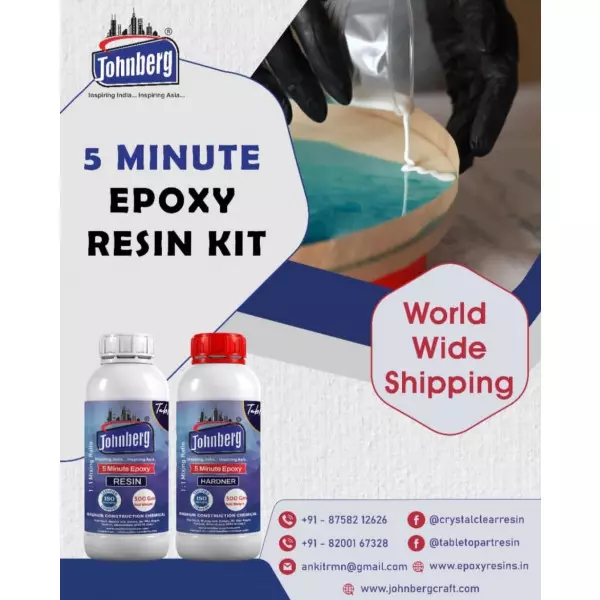Epoxy Resin Manufacturers In Imphal
Details of Epoxy Resin
Epoxy resin is a type of synthetic thermosetting polymer widely used in industrial, commercial, and artistic applications due to its strong adhesive properties, chemical resistance, and excellent mechanical performance.
Basic Overview
Chemical Family: Epoxides (based on epoxide functional groups)
Main Components:
Resin (Part A): Usually made from epichlorohydrin and bisphenol-A (or other polyols)
Hardener (Part B): Often an amine-based compound that triggers the curing process
Key Properties
Property Description
Adhesion Bonds well to wood, metal, glass, stone, and most plastics
Durability Highly resistant to wear, heat, and chemicals
Curing Exothermic chemical reaction when mixed with a hardener
Thermal Resistance Operates in a wide temperature range (usually -40°C to 120°C)
Mechanical Strength High tensile and compressive strength after curing
Electrical Insulation Excellent dielectric properties
Applications
Construction: Flooring, crack repair, coatings
Electronics: PCB encapsulation, insulation
Marine: Boat building and repair
Automotive: Body repairs, composite parts
Arts & Crafts: Jewelry, river tables, casting, molds
Aerospace & Composites: Bonding carbon fiber and fiberglass
Types of Epoxy Resins
Bisphenol A (BPA) Based: Most common, strong and versatile
Bisphenol F (BPF) Based: Lower viscosity, better chemical resistance
Novolac Epoxy: High chemical and thermal resistance
Aliphatic Epoxy: UV-resistant, used in clear coatings
Cycloaliphatic Epoxy: Used in electrical applications

